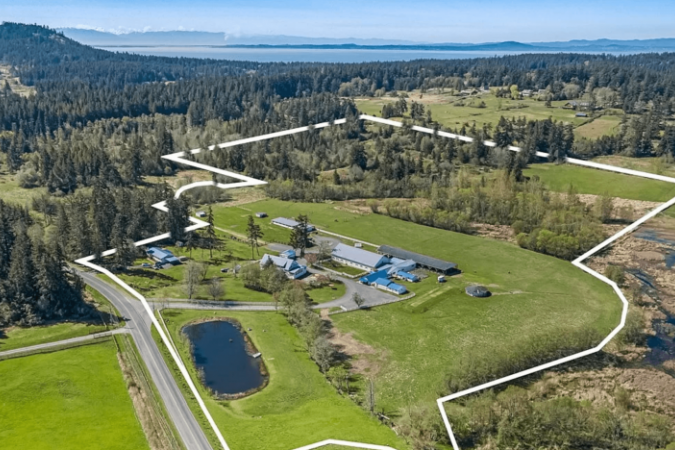Meet the Farmers
Emma Rastatter and Wiley Webb pursued a wide range of agricultural work experience before making the jump to independent farm ownership. Emma’s entry to food system work started in a pre-med track at Stanford University. Her desire to pursue a more holistic approach to care led her “upstream of the clinic”, first to a job in health tech, and then ultimately to agriculture. When a friend provided a connection to the Stone Barns Center for Food and Agriculture in New York, Emma had an “aha moment” in a gathering of chefs, growers, and seed breeders: “Regenerative agriculture is this intersection of human health and ecological health, and it’s soulful and delicious in ways I didn’t find in a clinic or a tech office.”
Over the coming years, Emma and Wiley completed training stays at farms on three unique islands: San Juan in Washington state, Hawaii, and Nantucket in Massachusetts. They also visited 75 farms across the country to learn about different cropping systems and elements of regenerative agriculture before returning to the San Juan islands where they put their learning into practice by founding Saturn’s Return.
In Emma’s previous work consulting for the farm stay organization Sagra, she received an in-depth education in the value of leveraging on-farm hospitality to create the financial stability needed for long-term land tenure, so the pair decided to make that diversification a core element of Saturn’s business model. Emma also serves as the Executive Director of the San Juan Islands Agricultural Guild. Wiley continues to work for Permanent, the local food aggregation business he founded, while also maintaining full partnership in the work of Saturn’s Return, especially focusing on the perennial food systems and culinary experience on the farm.
Regenerative & Sustainable Practices
In order to fit within the unique agro-ecological niche of the NW islands and mitigate the expense of importing inputs, Saturn’s Return utilizes a broad range of regenerative practices to invest in the farm soils and ecosystem:
- After establishment, garden beds will be managed as “no-till”
- On-site compost production and vermicomposting of food scraps from the inn’s commercial kitchen will scale to meet farm needs and ideally yield surplus for sale
- Alley cropping and agroforestry combine the benefits of perennial fruit and nut production with annual rows of vegetables and flowers
- Pastured poultry and other livestock will graze the agricultural lands adding diversification, disrupting pest life cycles, and improving soils
- Partnering with WSU Extension on trials for new crops and varieties that thrive in the San Juans, and providing open-source agronomic and economic insights
- Licensed seaweed harvesting adds the most local possible form of micronutrients to agricultural soils and contributes to a “closed-loop” farm model
- Riparian plantings and restoration work along the Garrison Creek watershed will protect the spawning grounds (on the farm property) of the island’s last population of native cutthroat trout
- Diversifying the farm business with on-site hospitality and events contributes to a more sustainable bottom line and the ability to pay living wages to farm staff


